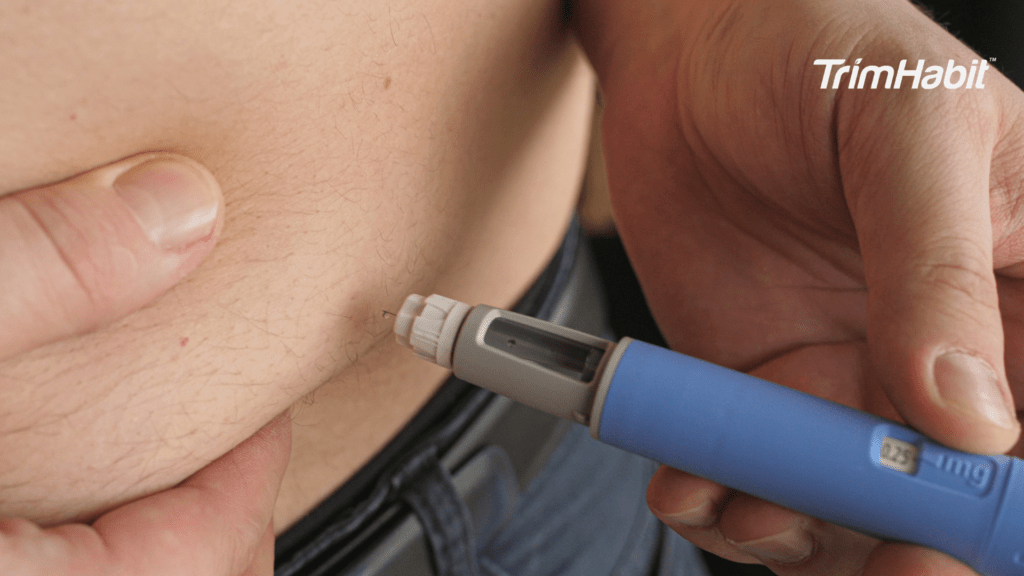Intermittent fasting has become a popular approach for weight management and overall health, prompting many individuals to carefully consider what they consume during fasting periods. In this quest for fasting-friendly beverages, Crystal Light often emerges as a contender due to its low-calorie, flavorful nature.
But does Crystal Light break intermittent fasting?
Let’s explore if Crystal Light affects intermittent fasting. We’ll find out if this drink works with fasting principles or if it might disrupt the fasting process.
As we look into how this drink affects fasting, it’s important to grasp the details of intermittent fasting, the ingredients in Crystal Light, and how they might interact during the fasting period.
What Is Intermittent Fasting?
Intermittent fasting is an eating pattern that alternates between periods of eating and fasting. Unlike traditional diets that focus on what to eat, intermittent fasting concentrates on when to eat1. It doesn’t prescribe specific foods but rather emphasizes specific timeframes for eating and fasting.
There are several methods of intermittent fasting, but the common factor is cycling between periods of eating and abstaining from food. Here are a few popular methods2:
- 16/8 Method: This involves a daily fast for 16 hours, with an eight-hour window for eating. For example, one might eat between noon and 8 p.m. and fast from 8 p.m. to noon the next day.
- 5:2 Diet: This approach involves consuming a regular diet five days a week and significantly reducing calorie intake (around 500-600 calories) on the other two non-consecutive days.
- Alternate-Day Fasting: This method alternates between days of regular eating and days of fasting or consuming very few calories.
- Eat-Stop-Eat: In this approach, also so-called 24-hour fast, individuals fast for a complete 24 hours once or twice a week.
- Warrior Diet: This involves eating small amounts of raw fruits and vegetables during the day and having one large meal at night within a 4-hour eating window.
Intermittent fasting may not be suitable for everyone, and individual responses can vary. It’s important to consult with a healthcare professional before starting any fasting regimen, especially for those with existing medical conditions or women who are pregnant or breastfeeding.
As with any dietary approach, it’s crucial to find a method that aligns with individual preferences and health goals.
Benefits Of Intermittent Fasting
There are numerous benefits to practicing intermittent fasting. This approach aids in:
- Weight Loss: Intermittent fasting may contribute to weight loss by reducing calorie intake and improving fat metabolism3.
- Metabolic Health: Fasting periods can enhance insulin sensitivity, lower and maintain healthy blood sugar levels, and reduce the risk of type 2 diabetes4.
- Heart Health: Intermittent fasting may have positive effects on heart health by improving cardiovascular risk factors, such as improved cholesterol levels and blood pressure5.
- Longevity: Some studies suggest that intermittent fasting may promote longevity and increase lifespan6.
- Cellular Repair: Fasting periods may trigger cellular repair processes and autophagy, where the body removes damaged cells7.
What Is Crystal Light?
Crystal Light is a brand of powdered beverage mix that allows individuals to create a low-calorie, flavored drink by mixing the powder with water. It is often used as a sugar-free alternative to traditional soft drinks or fruit juices8.
Crystal Light comes in various flavors, and the powder is typically packaged in small, individual serving-sized packets for convenience.
Key features of Crystal Light include:
1. Low Calorie: Crystal Light is marketed as a low-calorie drink option, making it popular among individuals who are looking to reduce their calorie intake or manage their weight9.
2. Sugar-Free: Crystal Light is typically sweetened with artificial sweeteners, such as aspartame or sucralose, instead of sugar. This makes it a suitable choice for those who are trying to limit their sugar consumption or manage conditions like diabetes10.
3. Flavor Variety: Crystal Light comes in a wide range of flavors, including fruit flavors like lemonade, raspberry lemonade, cherry limeade, and more. This variety allows consumers to choose flavors that suit their preferences8.
4. Convenience: The powdered form of Crystal Light is convenient and portable. Users can easily carry individual packets with them and mix the powder with water to create a flavored beverage on the go8.
It’s important to note that while Crystal Light is a popular choice for those seeking low-calorie and sugar-free beverage options, opinions on the use of artificial sweeteners can vary.
Some people may choose Crystal Light as part of their hydration routine, while others may prefer alternative drinks. Individuals with specific health concerns or sensitivities to artificial sweeteners should consider consulting with a healthcare professional.
Does Crystal Light Break Intermittent Fasting?
Crystal Light is a flavored drink mix that’s typically low in calories and sugar-free, but it contains artificial sweeteners. While Crystal Light is a calorie-free drink and doesn’t contain significant sugar, there are some discussions on whether it breaks an intermittent fast due to its artificial sweeteners.
Intermittent fasting involves abstaining from calorie intake during fasting periods. The primary goal is to keep insulin levels low to facilitate fat-burning and other metabolic benefits. However, if you drink Crystal Light, artificial sweeteners are present like aspartame or sucralose that might stimulate an insulin response in some individuals, despite having no or few calories.
The insulin response from artificial sweeteners is a subject of debate among experts. Some argue that even though artificial sweeteners don’t provide calories, they might trigger an insulin response, potentially interrupting the fasting state11. Others suggest that the small amounts of artificial sweeteners in Crystal Light might not significantly impact insulin levels or break a fast12.
Ultimately, whether Crystal Light breaks an intermittent fast can vary based on individual responses. If the goal of intermittent fasting is to derive metabolic benefits, some individuals might choose to avoid Crystal Light during fasting periods to stay in a fully fasted state.
It’s advisable that many people may even opt for plain water or unsweetened drinks to maintain their fasting state without any potential insulin response.
Make sure to consult with a healthcare professional or a nutritionist who might provide more personalized guidance on whether consuming Crystal Light would impact your specific intermittent fasting, especially if your goal is to lose weight.
Fasting Friendly Drinks
Instead of opting for Crystal Light, consider choosing these alternatives for a more fasting-friendly beverage selection:
- Water: Opt for plain water as your primary source of hydration during fasting. It’s calorie-free and essential for overall well-being.
- Black Coffee: Enjoy black coffee without added sugars or cream for a low-calorie, fasting-approved energy boost.
- Green Tea: Choose unsweetened green tea for its antioxidant properties and minimal calorie content.
- Sparkling Water: Opt for plain, unflavored sparkling water to add a refreshing twist to your beverage choices without introducing calories.
- Apple Cider Vinegar (Diluted): If you enjoy the potential benefits of apple cider vinegar, consume it in small, diluted amounts during fasting.
Summary
In conclusion, the impact of Crystal Light on intermittent fasting remains a subject of individual variability. While Crystal Light is low in calories and sugar-free, the presence of artificial sweeteners raises questions about its compatibility with the fasting state. The potential insulin response triggered by these sweeteners may vary among individuals, influencing their metabolic goals during intermittent fasting.
For those prioritizing strict adherence to a fasting state for maximal metabolic benefits, choosing plain water or unsweetened beverages is advisable. However, individuals less concerned about potential minor disruptions to fasting may find moderate consumption of Crystal Light acceptable.
Ultimately, the decision to include Crystal Light in an intermittent fasting routine should align with individual health goals, preferences, and responses. Consulting with a healthcare professional or a nutritionist can provide personalized insights into whether Crystal Light aligns with specific intermittent fasting objectives.
Citations
8 Kraft Heinz. (n.d.). Crystal Light. Retrieved from https://www.crystallight.com/
9 FoodData Central. (n.d.). https://fdc.nal.usda.gov/fdc-app.html#/food-details/539339/nutrients









